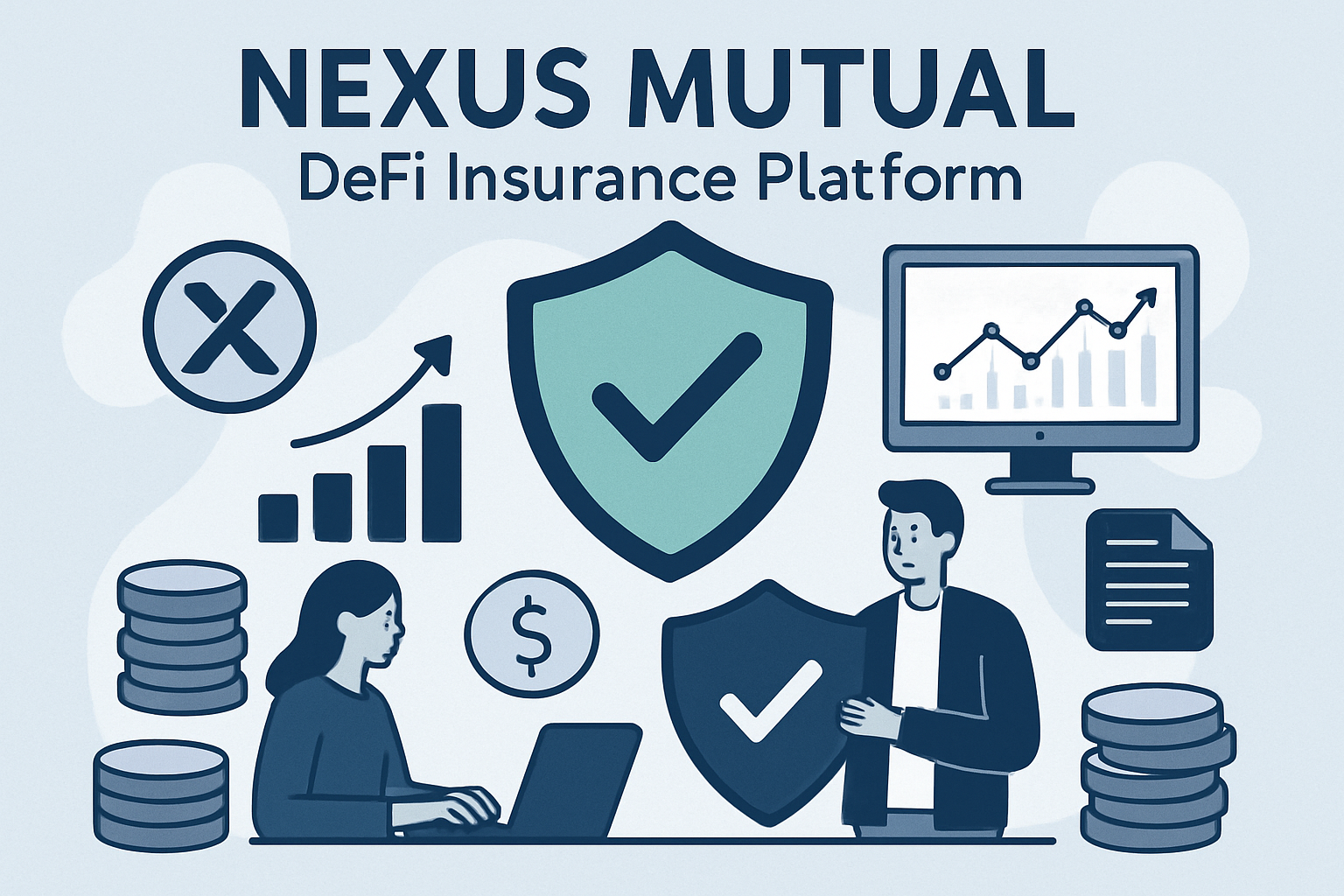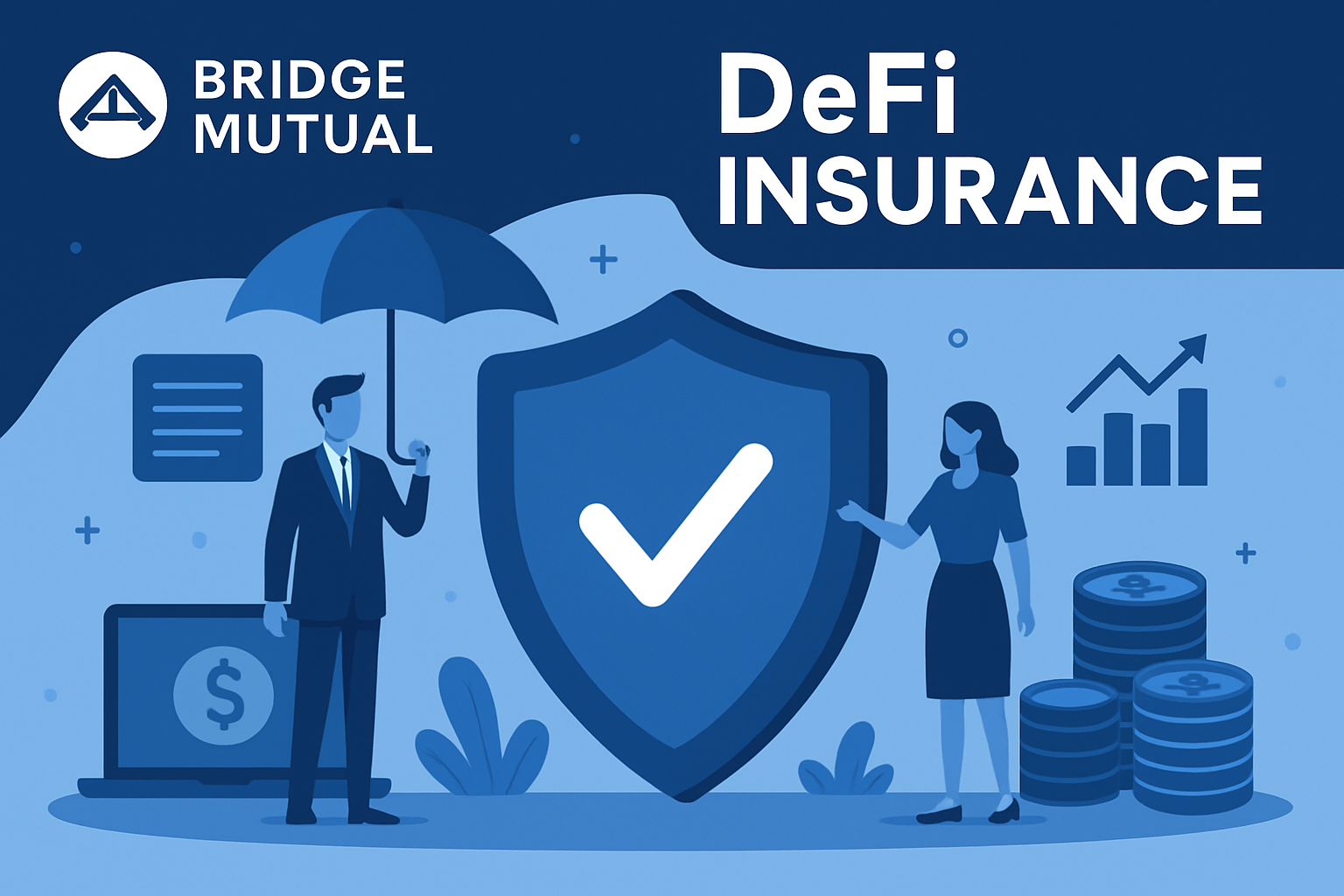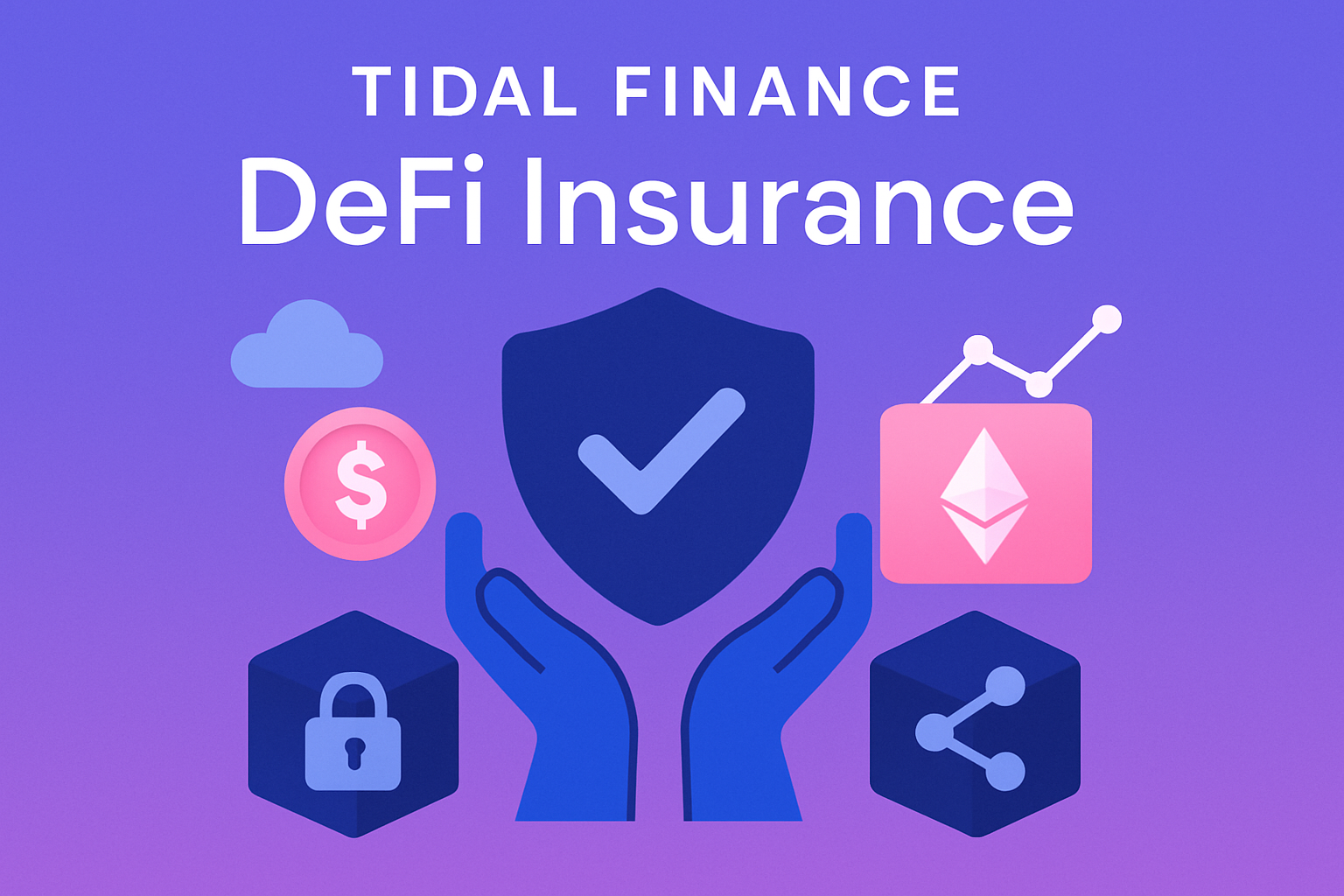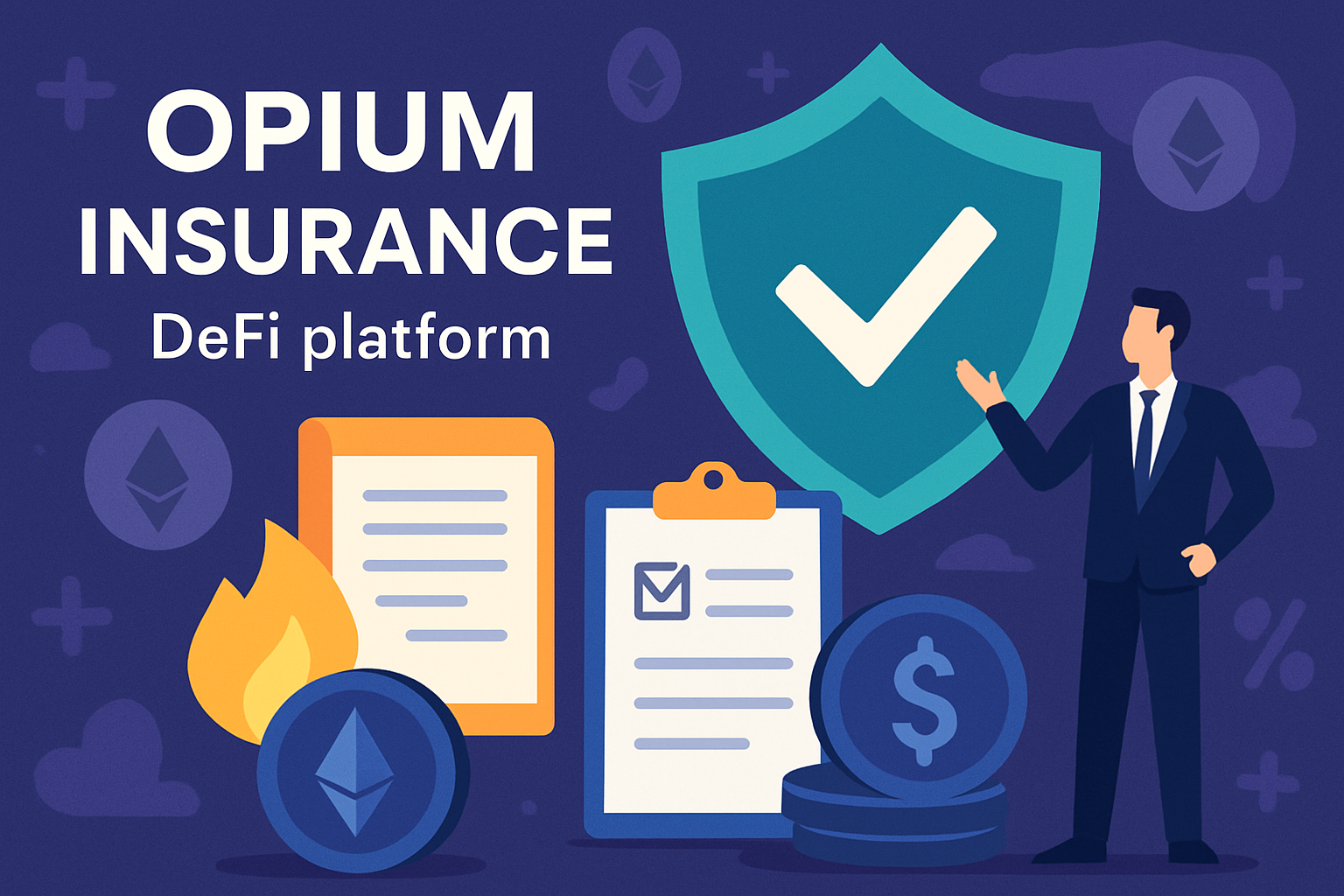
In the rapidly evolving world of decentralized finance, smart contract exploits remain one of the most significant threats to user funds. As DeFi protocols continue to attract billions in total value locked, the need for robust insurance coverage has become non-negotiable for savvy investors and builders alike. Comparing DeFi insurance providers is a critical step in managing risk and safeguarding your assets against unforeseen vulnerabilities. But with an expanding roster of platforms and diverse coverage models, how do you identify the best fit for your portfolio?

Why Smart Contract Exploit Coverage Matters in 2025
Smart contracts are the backbone of DeFi, but even minor coding flaws can lead to devastating losses. In 2025 alone, high-profile exploits have underscored why smart contract exploit coverage is essential. Unlike traditional finance where recourse may be available through centralized intermediaries or government guarantees, DeFi users are largely on their own when disaster strikes. That’s where decentralized insurance steps in: offering compensation mechanisms designed specifically for protocol failures.
Let’s break down what sets today’s leading providers apart and why their approaches matter for your risk management strategy.
The Top 5 DeFi Insurance Providers for Smart Contract Exploits
Top 5 DeFi Insurance Providers for Smart Contract Exploits
-

Nexus Mutual is one of the most established DeFi insurance protocols, operating as a member-owned mutual. It provides coverage against smart contract exploits, exchange hacks, and governance attacks. Members pool capital and vote on claims, ensuring a decentralized approach. As of October 20, 2025, the NXM token is priced at $96.09.
-

InsurAce stands out for its multi-chain coverage across Ethereum, BNB Chain, and Polygon. It offers affordable protection for smart contract vulnerabilities, stablecoin de-pegs, and centralized exchange risks. InsurAce is known for its flexible policy options and competitive premiums.
-

Bridge Mutual is a decentralized, peer-to-peer insurance marketplace. It covers smart contract exploits, stablecoin de-pegs, and exchange hacks. Users can provide or purchase coverage, and claims are processed via community voting, promoting transparency and fairness.
-

Tidal Finance offers customizable insurance pools for DeFi protocols. It enables users to create and participate in coverage pools against smart contract vulnerabilities and protocol-specific risks. Tidal is recognized for its flexibility and capital efficiency.
-

Opium Insurance delivers tradable, tokenized insurance positions for DeFi users. It covers smart contract exploits, stablecoin defaults, and other DeFi-specific risks. Opium’s products are designed for active traders seeking on-chain, transparent risk protection.
Nexus Mutual remains a cornerstone of the ecosystem. With its mutual model and member-driven claims process, it offers coverage against smart contract exploits, exchange hacks, and governance attacks. As of October 20,2025, Nexus Mutual (NXM) is trading at $96.09, reflecting both strong demand and market confidence in its platform. Members pool capital and vote on claims, a unique approach that aligns incentives between users and underwriters.
InsurAce stands out for its multi-chain capabilities. Users can secure affordable protection across Ethereum, BNB Chain, Polygon, and more, all from a single dashboard. InsurAce covers not just smart contract exploits but also stablecoin de-pegs and centralized exchange risks. This flexibility makes it a popular choice among diversified DeFi investors seeking comprehensive risk mitigation.
Bridge Mutual is known for its peer-to-peer risk sharing model within the DeFi ecosystem. It offers customizable policies covering smart contract vulnerabilities as well as exchange hacks and stablecoin crashes, ideal for users who want more granular control over their protection levels.
Key Factors When Comparing Providers
The best provider isn’t always the one with the lowest premiums or flashiest interface, it’s about matching your personal risk profile with transparent terms and reliable payouts. Here’s what to look for:
- Coverage Scope: Does the insurer protect against only smart contract exploits or also cover related risks like governance attacks or stablecoin depegs?
- Payout Process: How are claims assessed? Are they community-voted (like Nexus Mutual) or handled by an independent panel?
- Premium Cost: What are you paying relative to potential coverage? Are rates fixed or dynamic based on protocol risk?
- Capital Backing: Is there sufficient liquidity to cover large-scale events? How transparent is their reserve management?
- User Experience: Is it easy to buy policies across multiple chains? Can you manage everything from a unified dashboard?
Tidal Finance and Opium Insurance: New Models in Decentralized Coverage
Tidal Finance, while newer than some competitors, brings an innovative approach by enabling customizable pools where users can underwrite specific protocols they trust most, potentially earning higher yields while supporting ecosystem security.
Opium Insurance, meanwhile, leverages tokenized insurance positions that can be traded on secondary markets, a game-changer for liquidity and flexibility in managing exposure to smart contract hacks or stablecoin defaults.
Which DeFi insurance provider do you trust most for smart contract exploit coverage?
With the DeFi landscape rapidly evolving, several leading platforms now offer coverage against smart contract exploits. Based on our curated list of top providers, let us know which one you trust the most to protect your assets.
This diversity in models means there’s no one-size-fits-all answer, which underscores why careful comparison is so crucial when selecting your DeFi insurance provider.
Evaluating these providers side by side reveals a spectrum of approaches to DeFi risk management. For example, Nexus Mutual’s mutualized risk pool and current price of $96.09 (as of October 20,2025) signal both the depth of its capital base and the community’s ongoing trust. In contrast, InsurAce’s multi-chain reach and bundled policies cater to users who prioritize convenience and broad-based protection. Bridge Mutual, with its peer-to-peer ethos, is well-suited for those who want more control over policy terms and risk selection.
When it comes to newer entrants like Tidal Finance and Opium Insurance, their innovative mechanics can be particularly appealing for advanced users. Tidal’s customizable pools allow you to underwrite risk for specific protocols, potentially boosting returns if your due diligence pays off. Opium’s tokenized insurance positions introduce secondary market liquidity, letting you adjust your coverage or exit positions in real time as market conditions evolve.
Comparing Claims: Transparency and Speed Matter
No insurance is truly tested until a claim is made. That’s why examining historical claim data, such as payout ratios, average processing times, and dispute resolution mechanisms, is vital when choosing between providers. Nexus Mutual’s community voting mechanism can mean more transparent but occasionally slower claims. InsurAce emphasizes fast settlements via third-party audits. Bridge Mutual leverages decentralized voting but also offers expedited options for clear-cut cases.
Tidal Finance’s model relies on efficient smart contract automation to process claims, while Opium Insurance may benefit from tradable policies that enable users to mitigate losses even before an official claim is resolved.
- Check actual claim success rates: Platforms with high payout ratios demonstrate reliability in honoring policies.
- Assess governance transparency: Look for detailed reporting on claim decisions and reserve status.
- Consider user reviews: Community sentiment can reveal hidden pain points or highlight exceptional service.
Final Thoughts: Matching Coverage With Your DeFi Journey
The landscape of DeFi insurance providers continues to expand as new risks emerge and protocols mature. Whether you’re a conservative investor seeking tried-and-true mutual models like Nexus Mutual at $96.09, a cross-chain explorer favoring InsurAce’s flexibility, or an active participant eager to experiment with Tidal Finance or Opium Insurance, the right choice depends on your unique exposure profile and security philosophy.
If you’re still unsure which provider best fits your needs, or want deeper insights into how these platforms stack up, explore our dedicated comparison guide: Comparing DeFi Insurance Protocols: Nexus Mutual vs InsurAce vs Unslashed.






